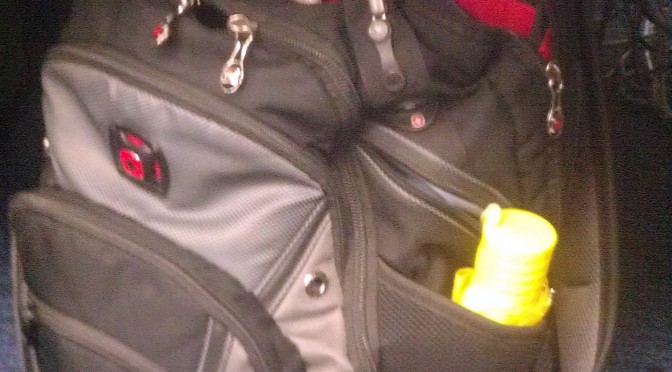Taxation without representation is the start of a steep downwards spiral.
Without representation – meaning we say what happens with our money – we’d be funding programmes that we can’t control.
Gov’t systems, by their very nature, demand control and money, plain and simple. My thoughts here lie in the ‘paranoid fringe’ area, but observation of current events some countries leads me to these conclusions.
It’s all about the money.
Money on its own isn’t evil – the love of money is. And gov’t systems love money, because of the power that comes with it.
____________________________________
Please note, gentle reader, that what i write below doesn’t have to be this way.
![2200320669_5295e507a1_o[1]](https://i0.wp.com/www.monkeyinfinitum.com/wp-content/uploads/2013/11/2200320669_5295e507a1_o1-150x150.jpg?resize=150%2C150)
I’m writing in the hopes that some will see this,
give a thought to what they support,
and possibly try to keep this from happening.
____________________________________
If I were an evil gov’t genius, given virtually unlimited funding and an aim for unstoppable control, this would be my mid-to-long-term plan:
1) Prevent those who can’t be taxpayers from being born
(i.e. those with defects) – that’s why birth control isn’t pushed as hard by gov’t as is abortion.
Why spend control money on children who will never financially or ideologically support the system?
I’d ensure that every baby born is a happy, healthy baby, ready to bring joy to his mother’s house, who will eventually become a cherished member of (gov’t) society.
2) Destroy the two-parent family unit
It’s easier to take control of a family when there’s only one parent of the children.
Divide and conquer. Very simple.
For families with many parents (i.e. ‘shared families’) where the children live at grandma’s house, cousins’ house, ‘friend of family’ house, or sometimes in a combination of these, that’s ok too. The key bit is to keep the children’s loyalty off the single family unit. Especially for families that require gov’t assistance to survive.
Ideally, every family the children live in would be monitored to ensure the children have a solid education in the benefits received by the system.
I’d ensure every child gets the care they need, even if this means placing a child in another home for a short time. This way the birth parent(s) can get the retraining they need without endangering the child’s development.
3) Train up a child in the way he should go, and when he is old he will not depart from it.
The gov’t needs taxpayers. It needs taxpayers who are conditioned to support the cause from birth.
That’s why it condones people on the dole who have multiple babies and gives them money to raise them in gov’t -sponsored creches and feeds them gov’t-sponsored food (selected for its ability to leave them hungry afterwards, and that can’t be grown/produced without the help of gov’t assistance).
Dependence on gov’t healthcare schemes – now a law, and not just by preference – provides ‘free’ medical care for those on the dole. It’s easy! As long as you fill out the right forms, stand in the right line long enough, and come back when you find out the form you filled out at the start of the wait is no longer valid when its your turn at the window.
But those born into this don’t see anything wrong with this.
I’d ensure that every child has a means to a safe, productive life, with guaranteed education and a way to get the help they need. Regardless of the situation, they can always reach out to their ‘guardian angel’ who will act on their behalf if they feel threatened or neglected.
4) Remove those from the system who aren’t able to support the gov’t
This isn’t just for those who can’t provide money. Remember, gov’t craves power. If paying for loyalty is needed for a short while, then those supporting the cause are immune to corrective action, provided they give voting or public support when this is needed.
Gov’t mandated/sponsored ‘health care’ provides the vehicle for this.
Too old, to cranky, too ‘paranoid’? Can’t/won’t feed the system because of these attributes?
‘Death by waiting in line’, ‘mental health issues’, ‘national security risk’ labels, in that order, will cure this.
To assist with this, I’d set up gov’t agents to review and monitor sections of the taxpayer base, and question the actions taken. As and when the ‘offenders’ trip the right programme switches, they will be dealt with accordingly.
I’d ensure every citizen has a safe and productive environment in which to live, free from the worry that the demands of those unable to assist will prevent them from becoming successful.
5) Buy the votes and set up shop
In the USA, why do we have so many people on the dole who could be working but the gov’t doesn’t seem to care?
At the moment these are bought votes. They are the means to the end – control of individual rights. They support the actions taken by our gov’ts that reduce our access to individual liberty.
This means – and especially means – creating ‘Executive Orders’ that have the force of law, without the legal hassle of going through representatives of the tax base. This will cover all areas of individual liberty – from where we live, to the schools our children are taught in, to the way we physically protect ourselves and loved ones.
Those whose votes are bought will willingly allow this, by supporting the reps who won’t fight against them, and removing those who do.
It’s not just those who are bought – this includes those who are too fearful to speak out, those who honestly believe that Mankind on his own won’t make the right choices, or those who seek the comfort of someone/something to fix things for them without having to think about the details.
This doesn’t mean just Congress or the House or the Senate – it means anyone who represents us in gov’t. Local judges, law enforcement, city officials – they all have apart to play in this.
In the future, if we allow our rights to be ignored and legally dismissed by executive orders, the folks on the dole will be working too, by force. The gov’t ‘owns’ their children in school, ‘owns’ their medical cards, ‘owns’ their housing and education and will be demanding recompense for these things. Ain’t nothing free.
Its a small victory, however.
I’d ensure the needs of the many are taken care of quickly, efficiently, and firmly. There are times when we can’t stop and argue about what needs to be done. Our people expect, no, deserve, a leadership that can take action swiftly and without hindrance.
6) Put a fork in it, time to eat
The rest of us, who’ve been working and paying taxes and generally supporting ourselves the whole time?
By that time, “equal pay for equal work” will be enforced, and taxed heavily. And enforced heavily as well via the tax-paying mechanism and at gunpoint, literally. In the USA we have the IRS and FEMA to thank for this.
If you don’t think FEMA is something to worry about because it’s only for ‘national emergencies’ think again.
FEMA is part of Homeland Security.
OIG (Office of Inspector General) is part of FEMA.
OI (part of OIG) is part of OIG.
OI has the authority to investigate Social Security fraud.
OI has recently received, at the request of the SSA (Social Security Administration) approval for the purchase of 174,000 rounds of “.357 Sig 125 grain bonded jacketed hollow point pistol ammunition.”
This only one department – many others are stocking up as the media stories fed to the public strongly discourage personal gun ownership. Basically we’re being outgunned and won’t be able to prevent action by force when it comes down to this. Unless, of course we urge our reps to stop this, and they actually take action to represent us.
Jobs will be ‘graded ‘and we won’t earn more than the pay grade allows. To move to a different grade will require gov’t approval and review. If you know someone who has power to move you up a notch (for an under-the-table fee) then you may have a means to make a little more cash at a higher tax rate.
Entrepreneurs – those who now work free-lance or who own their own business – will be subject to heavy fees, taxation at a rate much much higher than the general tax base, and invasive, regular auditing. This will kill many businesses as the owners decide it’s easier to just fit into a gov’t selected job slot for them, or go to a different country that hasn’t the same regulations. That’s going to be harder to find as time goes on however.
I’d ensure that no one is left out of the system. The days of “owning too much” are over. I’d ensure every homeless, down-trodden person who looks into the store window and sees the rich get richer will get a fair chance at getting a piece of this pie. I’d ensure that everyone gets a fair amount of pay for a fair amount of work. To do this we all have to work together – and to help with this I’ll assign specialists who can guide you on the way to success.
Yep. That’s what I’d do.
[queue evil laugh]
—————————–
Photo credits



![5181143856_82a26e68a7_o[1]](https://i0.wp.com/www.monkeyinfinitum.com/wp-content/uploads/2013/11/5181143856_82a26e68a7_o1-150x150.jpg?resize=150%2C150)


![2242736982_d35d3fb3c1_o[1]](https://i0.wp.com/www.focalpunkt.com/monkeyinfinitum/wp-content/uploads/2013/11/2242736982_d35d3fb3c1_o1-300x153.jpg?resize=300%2C153)

![9285812653_443a3c6b3f_o[1]](https://i0.wp.com/www.monkeyinfinitum.com/wp-content/uploads/2013/11/9285812653_443a3c6b3f_o1-300x169.jpg?resize=300%2C169)



![168363[1]](https://i0.wp.com/www.monkeyinfinitum.com/wp-content/uploads/2013/05/1683631-300x187.jpg?resize=300%2C187)

![8504098136_efc65ff913_o1-e1369505337118[1]](https://i0.wp.com/www.monkeyinfinitum.com/wp-content/uploads/2013/05/8504098136_efc65ff913_o1-e13695053371181-225x300.jpg?resize=225%2C300)

![11954288241231144644Stellaris_Angry_Nerd.svg_.hi1_[1]](https://i0.wp.com/www.monkeyinfinitum.com/wp-content/uploads/2013/02/11954288241231144644Stellaris_Angry_Nerd.svg_.hi1_1-300x204.png?resize=300%2C204)

![8021872271_cdc67ee111_o[1]](https://i0.wp.com/www.monkeyinfinitum.com/wp-content/uploads/2012/12/8021872271_cdc67ee111_o1-300x192.jpg?resize=300%2C192)

![5152904936_1283c0c0cc_o[1]](https://i0.wp.com/www.monkeyinfinitum.com/wp-content/uploads/2012/12/5152904936_1283c0c0cc_o1-300x252.jpg?resize=300%2C252)



![2204059683_09eb09601b_b[1]](https://i0.wp.com/www.monkeyinfinitum.com/wp-content/uploads/2012/09/2204059683_09eb09601b_b1-214x300.jpg?resize=214%2C300)





![angry1[1]](https://i0.wp.com/www.monkeyinfinitum.com/wp-content/uploads/2012/06/angry11.jpg?resize=300%2C300)




 related to filling out the form, and wondered in the back of my head where the idea had come from – as the suggestion wasn’t something i normally do or would have thought to do.
related to filling out the form, and wondered in the back of my head where the idea had come from – as the suggestion wasn’t something i normally do or would have thought to do.
![garden2[1]](https://i0.wp.com/www.monkeyinfinitum.com/wp-content/uploads/2012/05/garden21.jpg?resize=310%2C404)

![eztg[1]](https://i0.wp.com/www.monkeyinfinitum.com/wp-content/uploads/2012/04/eztg1-199x300.jpg?resize=199%2C300)
![dep_5029209-Scared-man[1]](https://i0.wp.com/www.focalpunkt.com/monkeyinfinitum/wp-content/uploads/2012/04/dep_5029209-Scared-man1-300x250.jpg?resize=300%2C250)
![b218200548[1]](https://i0.wp.com/www.focalpunkt.com/monkeyinfinitum/wp-content/uploads/2012/04/b2182005481-296x300.gif?resize=178%2C180)



![bar-chart-hi[1]](https://i0.wp.com/www.monkeyinfinitum.com/wp-content/uploads/2012/03/bar-chart-hi1-150x150.png?resize=150%2C150)